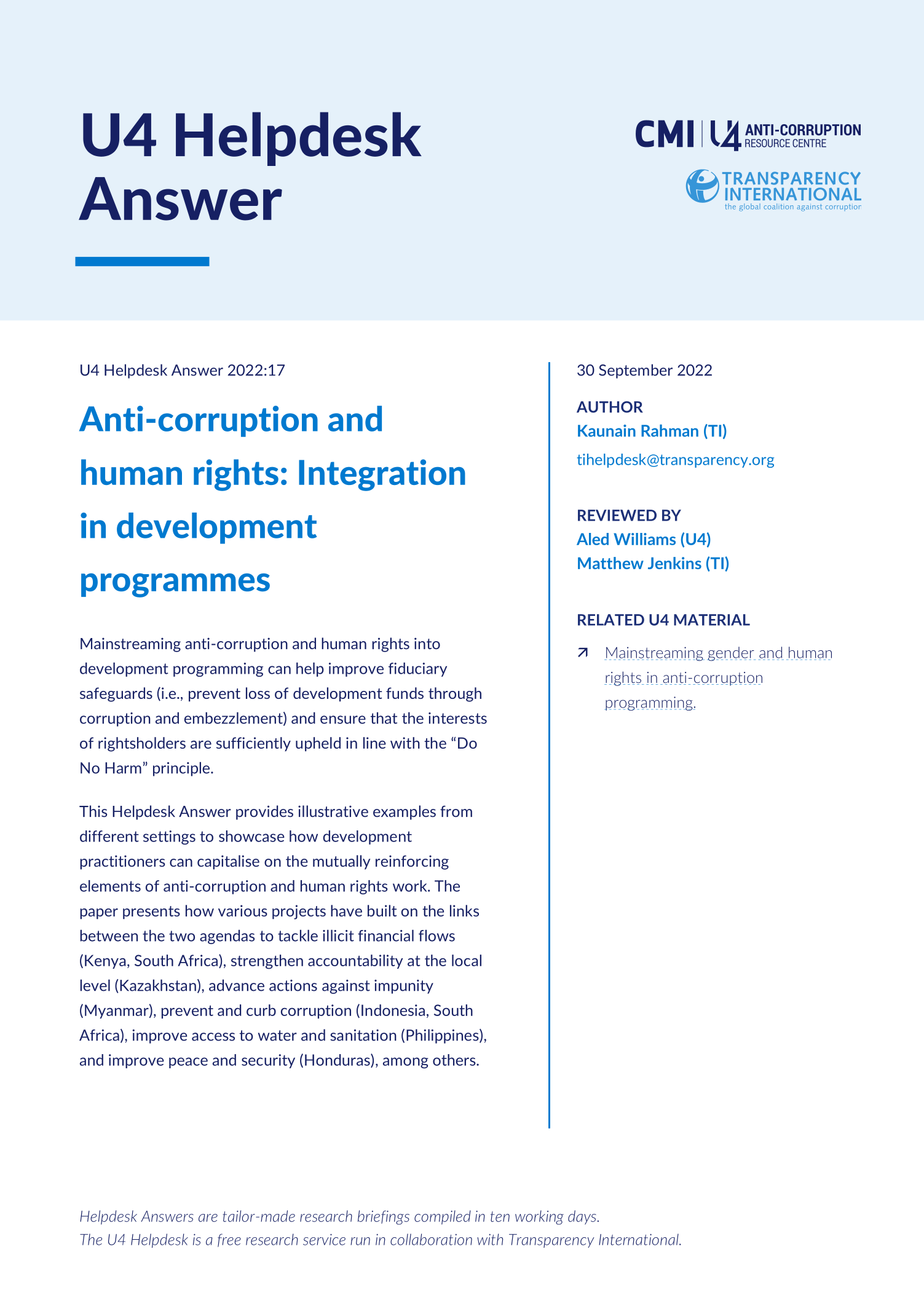Main points
- Corruption is widely acknowledged to undermine not only a range of human rights but also to corrode the rule of law and democratic norms. Conversely, studies show that upholding human rights is important if anti-corruption interventions are to have a meaningful and sustained impact.
- In integrating anti-corruption efforts across projects, donors can both protect their own finances from corruption and work to improve partner governments’ anti-corruption capabilities.
- A central theme in mainstreaming human rights in development assistance is applying a human rights based approach (HRBA).
- Illustrative project examples show cases in which efforts to curb corruption are aligned with measures to promote human rights.

